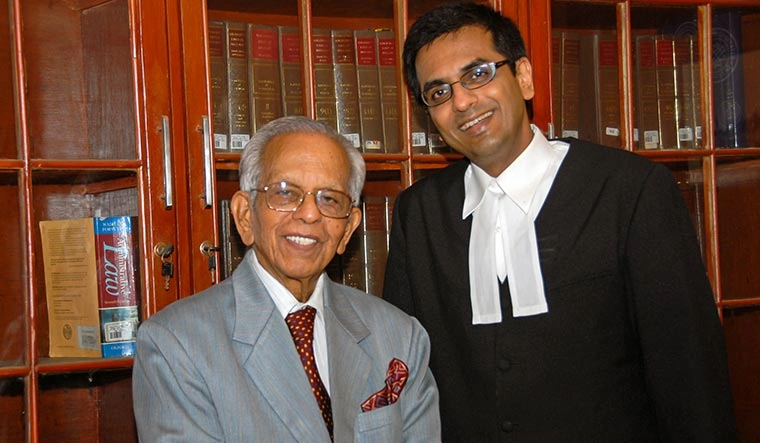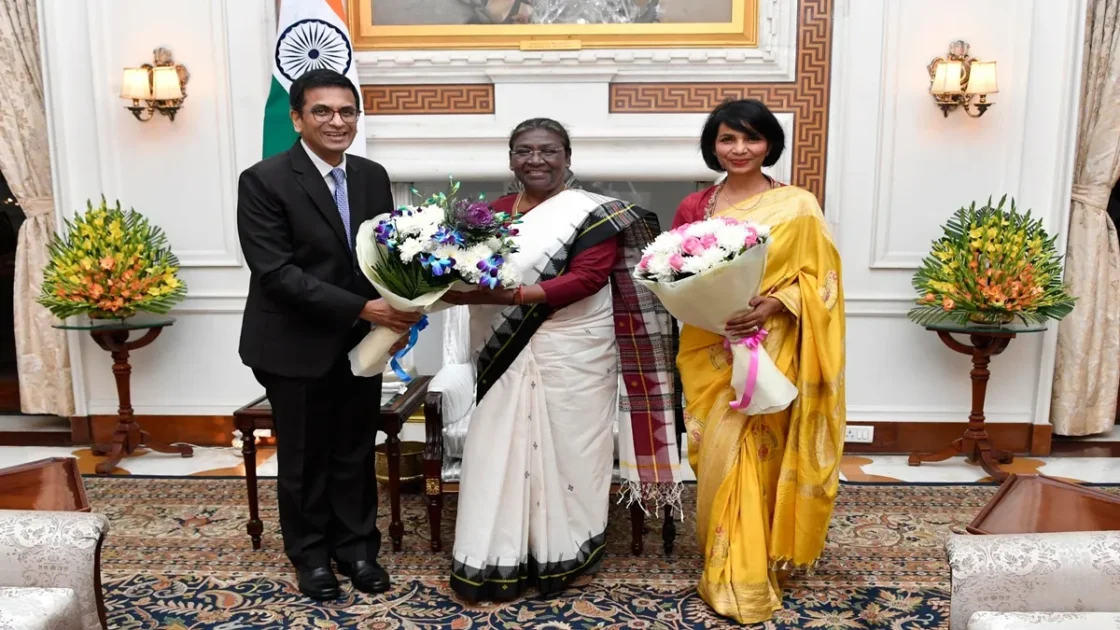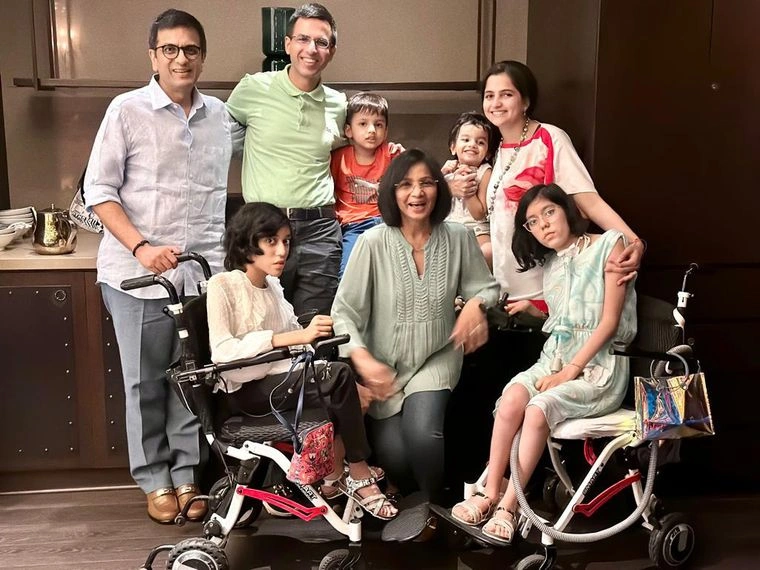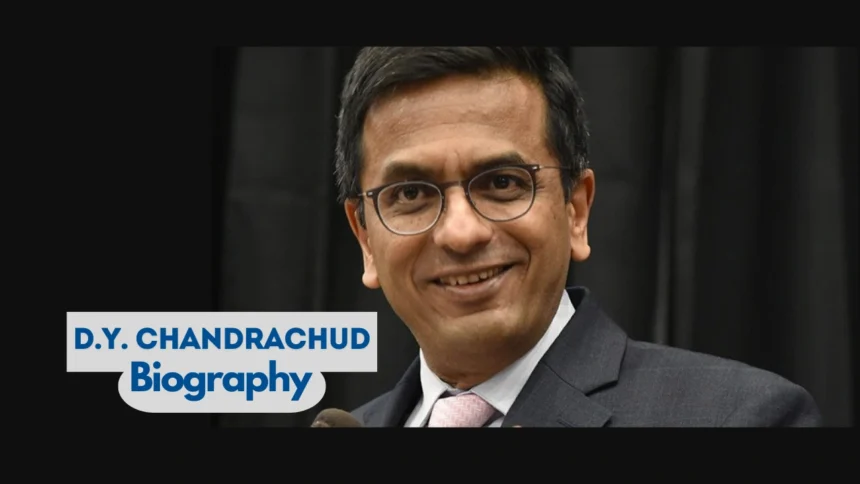DY Chandrachud biography: Justice Dhananjaya Yeshwant Chandrachud, the 50th Chief Justice of India, has made a remarkable name in the legal world. His appointment is significant not only because of his legal expertise but also because he and his father, Justice Y.V. Chandrachud, became the first father-son duo to serve as Chief Justices of India. Let’s take a look at his journey, career, and contributions to the Indian legal system.
Parents

Born on November 11, 1959, in Mumbai, Maharashtra, DY Chandrachud comes from a family deeply connected to law. His father, Justice Y.V. Chandrachud, was India’s longest-serving Chief Justice (1978-1985). His mother, Prabha Chandrachud, was a classical musician who performed for All India Radio. Growing up in such an environment, Justice Chandrachud was exposed to both law and culture from an early age, which shaped his passion for justice and fairness.
Education
CJI Chandrachud’s education was exceptional. He attended prestigious schools like Cathedral and John Connon School in Mumbai and St. Columba’s School in Delhi. He graduated with honors in Economics and Mathematics from St. Stephen’s College, Delhi, in 1979. But his true passion lay in law. In 1982, he earned his LLB from the Faculty of Law, University of Delhi, followed by an LLM from Harvard Law School. He also obtained a Doctorate in Juridical Sciences (SJD) from Harvard, laying a strong foundation for his legal career.
Legal Career
DY Chandrachud started his legal career at the Bombay High Court and the Supreme Court of India as an advocate. His sharp legal mind and dedication earned him recognition, and in 1998, he was designated as a Senior Advocate and appointed Additional Solicitor General of India. On March 29, 2000, he was appointed as a judge of the Bombay High Court, marking the beginning of his impressive judicial career.
On November 9, 2022, Justice Chandrachud became the Chief Justice of India.

DY Chandrachud biography: Landmark Judgments
Throughout his career, Justice Chandrachud has delivered several landmark judgments that have significantly shaped Indian society.
- Right to Privacy (2017): In the Puttaswamy case, he led the bench that ruled privacy as a fundamental right, strengthening individual freedoms in India.
- Decriminalization of Section 377 (2018): He was part of the bench that decriminalized consensual same-sex relationships, a crucial moment for LGBTQ rights in India.
- Hadiya Case (2018): Justice Chandrachud upheld a woman’s right to choose her religion and partner, defending personal freedom.
- Adultery Law (2018): He played a key role in striking down Section 497 of the IPC, which criminalized adultery, emphasizing gender equality.
- Sabarimala Temple Case (2018): Justice Chandrachud supported women’s right to enter the Sabarimala Temple, challenging old discriminatory practices.
Retirement
He is set to retire on November 10, 2024. His successor is said to be Justice Sanjiv Khanna, who will assume office following Justice Chandrachud’s retirement.
Wife and Children
CJI Chandrachud’s personal life has seen ups and downs. He was married to Rashmi Chandrachud, who passed away in 2007. He later married Kalpana Das. Together, they have two sons, Abhinav and Chintan, both lawyers. Justice Chandrachud has also adopted two foster daughters, reflecting his compassion and commitment to social causes.

Salary and Net Worth
As the Chief Justice of India, DY Chandrachud earns a monthly salary of ₹2,80,000, along with perks and benefits. While his exact net worth is not publicly known, his earnings reflect his high position and years of dedicated service.
Conclusion
Justice DY Chandrachud’s journey from law student to Chief Justice of India showcases his dedication, intellect, and commitment to justice. His landmark judgments have promoted equality, privacy, and personal freedom, and his leadership promises a more progressive and responsive judiciary. His legacy will be remembered for championing human rights and ensuring justice for all.
DY Chandrachud Biography will be updated here as new details emerge.
Disclaimer: This article is based on publicly available information and sources believed to be reliable. This post is for informational purposes only. India At Present Info. will not be responsible for any wrong information, readers are encouraged to verify the information independently.










